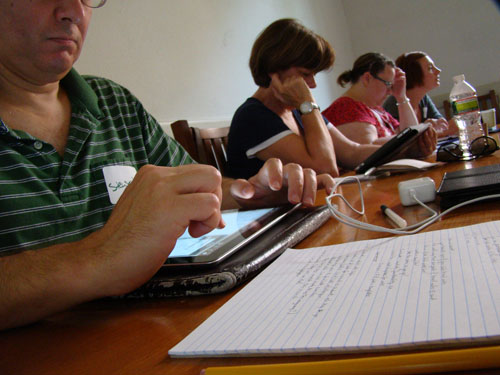
EdTechTeacher will host the first national iPads in education summit, bringing together educators, ερευνητές, tech directors, εντολέων, school leaders and industry partners to identify best practices for integrating iPads into education. The conference will be held from November 6th to 8th at The Joseph B. Martin Conference Center, Harvard Medical School in Boston.
Schools and districts nationwide continue to invest in mobile technologies. Ο Σύνοδος Κορυφής EdTechTeacher iPad hopes to provide educators in this country and overseas with a forum to discuss how to leverage these devices in order to further empower teachers and students as creators of their own learning. “While there are some technical sessions,” explains the EdTechTeacher team, “the focus is on creating effective pedagogy, enriching curriculum, and leveraging the device in order to support students and teachers as innovators.”
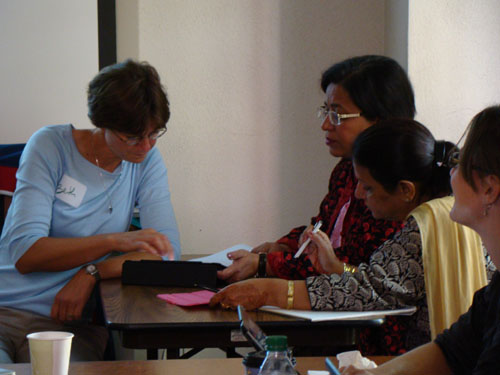
The keynote speaker at the conference is Tony Wagner, Innovation Education Fellow at the Technology & Entrepreneurship Center at Harvard. Wagner, an advocate for the need to better prepare students for 21st-century careers and citizenship, collaborated with noted filmmaker Robert Compton to create the 60 minute documentary, Το φαινόμενο Φινλανδία: Inside the World’s Most Surprising School System. Tony’s latest book, Δημιουργία Innovators: Η παραγωγή των νέων που θα αλλάξει τον κόσμο (Simon & Schuster), provides a powerful rationale for developing an innovation-driven economy. He explores what parents, δάσκαλοι, and employers must do to develop the capacities of young people to become innovators. What role can the iPad play in their education? What additional professional development for teachers is needed? What examples of best technology practices can we learn from around the world? Tony agreed to discuss these subjects with me.
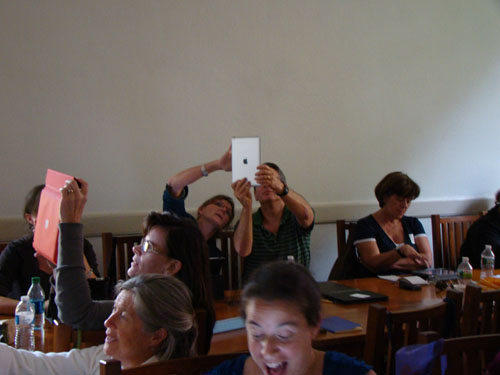
How has the iPad made learning in education more innovative, and how can educators use the iPad to achieve significant innovation in teaching and learning?
Πρώτα, the iPad has made using most computer-based learning applications far more accessible and intuitive. You no longer need to take students to a special room full of computers for that occasional experience; you don’t need to pull a laptop cart around the school. And students don’t need hours of training to learn how to use the device or its applications. Assuming a decent broadband connection, most computer related work – researching, γραπτος λογος, μοιρασιά – can happen at any time and for every student, with little or no advance preparation. Κατά δεύτερο λόγο, the comparative ease of creating and distributing an iPad app, versus writing a program for a computer, has given rise to a dramatic increase in the number of education-related applications being created and disseminated. Εν συντομία, the iPad has enabled greater access for both the education consumer and the creator.
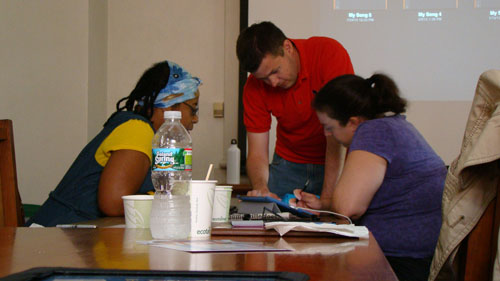
Is the missing link in education technology trained teachers?
Having teachers who are comfortable with the technology and who know how to apply it in the classroom is critical, but that problem will be mostly solved by time. As older teachers retire in growing numbers in the coming years, and many young people who are digital natives come into teaching, I think we will see a much more rapid adoption.
But the real question is: what will this technology will be used for? I toured a school district recently that had, with corporate help, put web-connected white boards and student clickers into every classroom at huge expense. Αλλά, in classroom after classroom, what I saw was all of this technology being used for drilling and test prep. Instead of having work sheets on their desks, students had clickers that enabled them to “vote” for the right answer on the practice test. More and better teacher preparation won’t solve this problem. We need assessments of the skills that matter most – like the online test called the College and Work Readiness Assessment, which measures problem-solving, reasoning, and writing skills – to encourage more powerful teaching and learning, both with and without the new technologies.
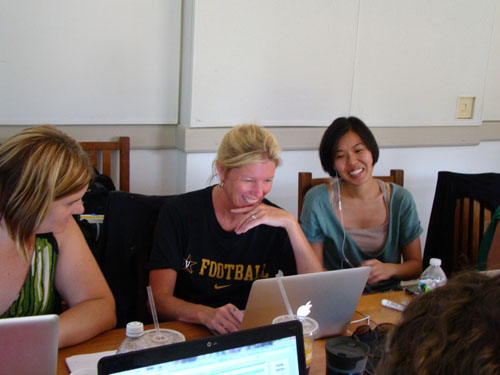
Can you share a couple of examples of good teaching/technology practice that you’ve seen in top education systems around the world, για παράδειγμα, στη Φινλανδία?
Στη Φινλανδία, what I saw was much less teacher-centric uses of technologies – I don’t recall seeing a single white board, για παράδειγμα – and much more student-centric technology applications. I saw students using Moodle (the e-learning platform) to share and discuss work. In a marketing class, I saw students discussing how various social networking applications were being used to market products and services. Here in the US, I’ve seen some schools like High Tech High require all students to have digital portfolios that show evidence of progressive mastery of the skills that matter most. I’ve seen virtual dissections in biology classes that teach far more than having to actually cut up a frog. And I’m excited about new software being developed that will enable students to better understand disruptions of complex ecosystems through simulation. Τελικά, the US Army has developed a wide variety of gaming applications to teach strategy.
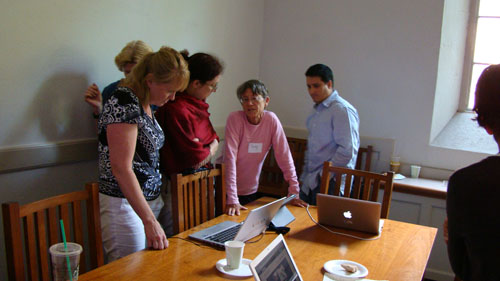
Online education continues to be an ever larger force in how students learn – how far can it go to changing education as we know it?
Knowledge is rapidly becoming a commodity and is increasingly democratized and globalized. You no longer need to be in a classroom to acquire the knowledge you want or need. But in my view, knowledge is only one of the three pillars needed for life-long learning, δουλειά, and citizenship in the 21st century. In addition to knowledge, students also need so-called 21c skills, such as those I’ve described in Το χάσμα παγκόσμια επίτευγμα. Τελικά, students need the motivations and dispositions that will enable them to innovate – to solve problems creatively – in whatever they do, which I’ve written about most recently in Δημιουργία Innovators. They will need to learn to work in teams, understand and solve problems using multiple disciplines, επιμείνουμε, take risks, and learn from mistakes. They will need to be intrinsically motivated to acquire new knowledge and skills throughout their lives. Developing the skills, habits of mind, and dispositions of an innovator, κατά τη γνώμη μου,, requires effective coaching – that is what I think all teachers must strive to become.
Για περισσότερες πληροφορίες: Δημιουργία Innovators , Σύνοδος Κορυφής EdTechTeacher iPad
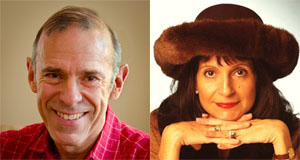
Photos courtesy of EdTechTeacher and Tony Wagner.
Στο παγκόσμιο Αναζήτηση για Εκπαίδευση, μαζί μου και παγκοσμίως γνωστή ηγέτες σκέψης συμπεριλαμβανομένου του Sir Michael Κομμωτήριο (Ηνωμένο Βασίλειο), Ο Δρ. Michael Block (ΗΠΑ), Ο Δρ. Leon Botstein (ΗΠΑ), Καθηγητής Clay Christensen (ΗΠΑ), Ο Δρ. Linda Ντάρλινγκ-Hammond (ΗΠΑ), Ο Δρ. Madhav Chavan (Ινδία), Ο καθηγητής Michael Fullan (Καναδάς), Ο καθηγητής Howard Gardner (ΗΠΑ), Ο καθηγητής Andy Hargreaves (ΗΠΑ), Ο καθηγητής Yvonne Hellman (Η Ολλανδία), Ο καθηγητής Kristin Helstad (Νορβηγία), Jean Hendrickson (ΗΠΑ), Καθηγητής Rose Hipkins (Νέα Ζηλανδία), Καθηγητής Cornelia Hoogland (Καναδάς), Η κ. Chantal Kaufmann (Βέλγιο), Ο Δρ. Eija Kauppinen (Φινλανδία), Υφυπουργός Tapio Kosunen (Φινλανδία), Ο καθηγητής Dominique Λαφοντέν (Βέλγιο), Ο καθηγητής Hugh Lauder (Ηνωμένο Βασίλειο), Καθηγητής Ben Levin (Καναδάς), Lord Ken Macdonald (Ηνωμένο Βασίλειο), Καθηγητής Barry McGaw (Αυστραλία), Shiv Nadar (Ινδία), Καθηγητής R. Natarajan (Ινδία), Ο Δρ. PAK NG (Σιγκαπούρη), Ο Δρ. Denise Πάπα (ΗΠΑ), Sridhar Rajagopalan (Ινδία), Ο Δρ. Diane Ravitch (ΗΠΑ), Richard Wilson Riley (ΗΠΑ), Sir Ken Robinson (Ηνωμένο Βασίλειο), Καθηγητής Pasi Sahlberg (Φινλανδία), Andreas Schleicher (PISA, ΟΟΣΑ), Ο Δρ. Anthony Seldon (Ηνωμένο Βασίλειο), Ο Δρ. David Shaffer (ΗΠΑ), Ο Δρ. Kirsten Μοναδική Are (Νορβηγία), Στήβεν Spahn (ΗΠΑ), Yves Theze (Lycee Francais Η.Π.Α.), Ο καθηγητής Charles Ungerleider (Καναδάς), Ο καθηγητής Tony Wagner (ΗΠΑ), Sir David Watson (Ηνωμένο Βασίλειο), Καθηγητής Dylan Γουίλιαμ (Ηνωμένο Βασίλειο), Ο Δρ. Mark Wormald (Ηνωμένο Βασίλειο), Ο καθηγητής Theo Wubbels (Η Ολλανδία), Ο καθηγητής Michael Young (Ηνωμένο Βασίλειο), και ο καθηγητής Minxuan Zhang (Κίνα) καθώς εξερευνούν τα μεγάλα ζητήματα της εκπαίδευσης εικόνα που όλα τα έθνη αντιμετωπίζουν σήμερα. Η Παγκόσμια αναζήτηση για την Εκπαίδευση της Κοινότητας Σελίδα
C. M. Rubin είναι ο συγγραφέας των δύο πολυδιαβασμένα online σειρά για την οποία έλαβε ένα 2011 Βραβείο Upton Sinclair, “Η Σφαιρική Αναζήτηση για Εκπαίδευση” και “Πώς θα μας Διαβάστε?” Είναι επίσης ο συγγραφέας του μπεστ σέλερ τρία βιβλία, Συμπεριλαμβανομένων Η Ρεάλ Αλίκη στη Χώρα των Θαυμάτων.


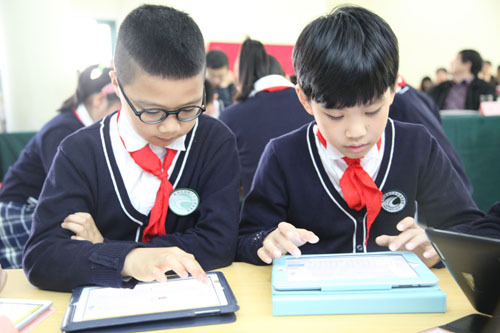
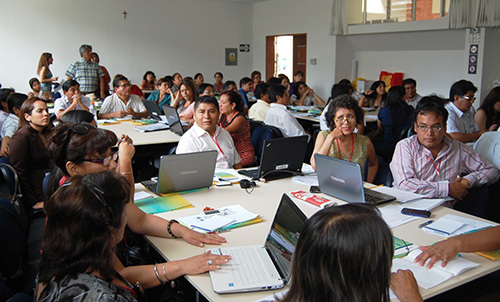

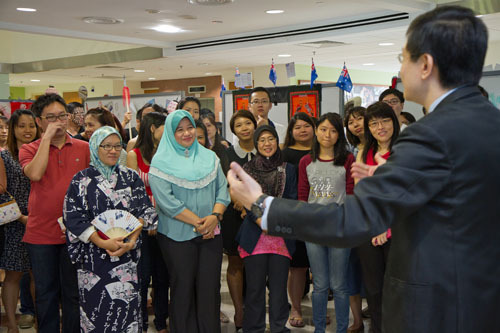
Πρόσφατα σχόλια